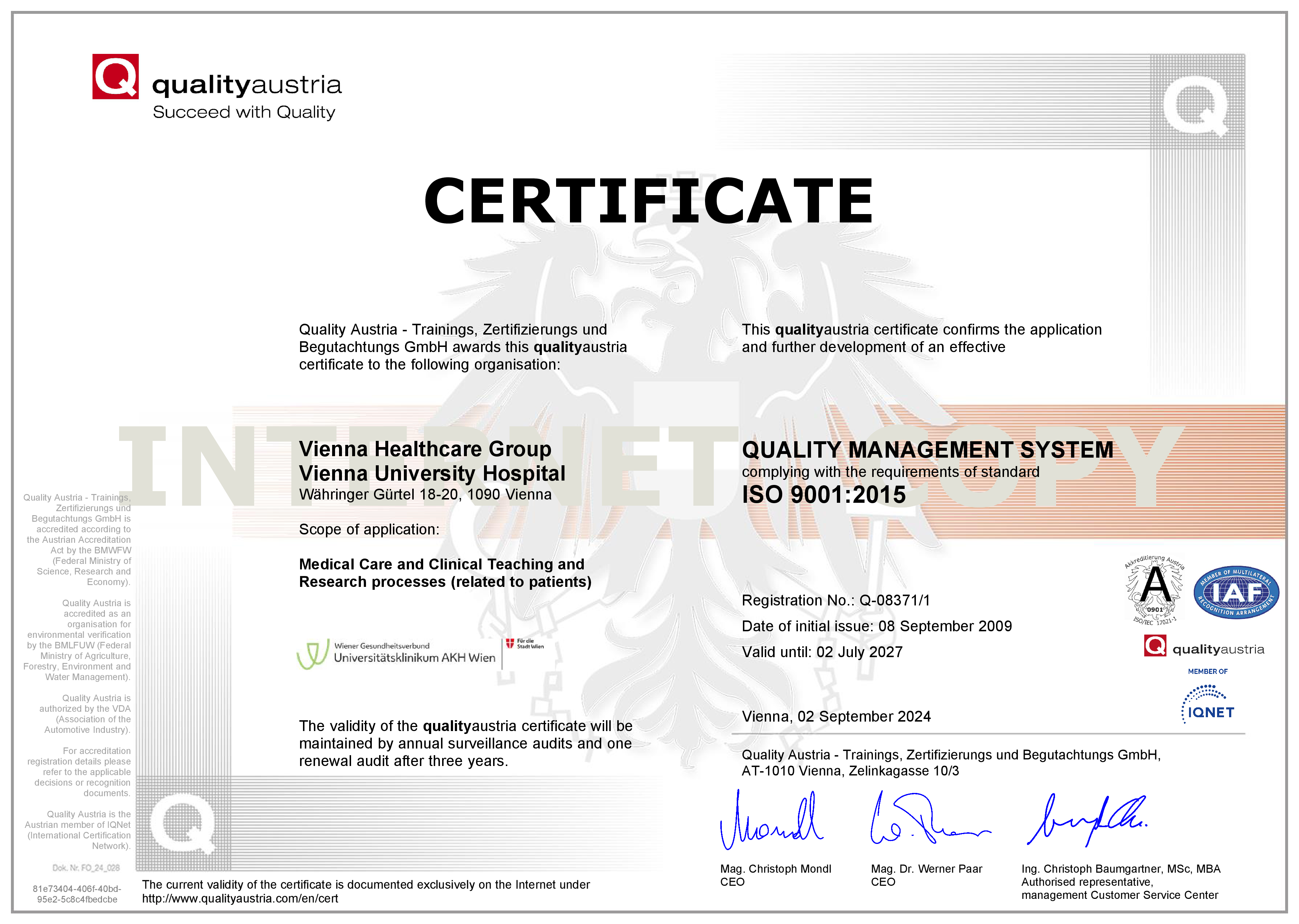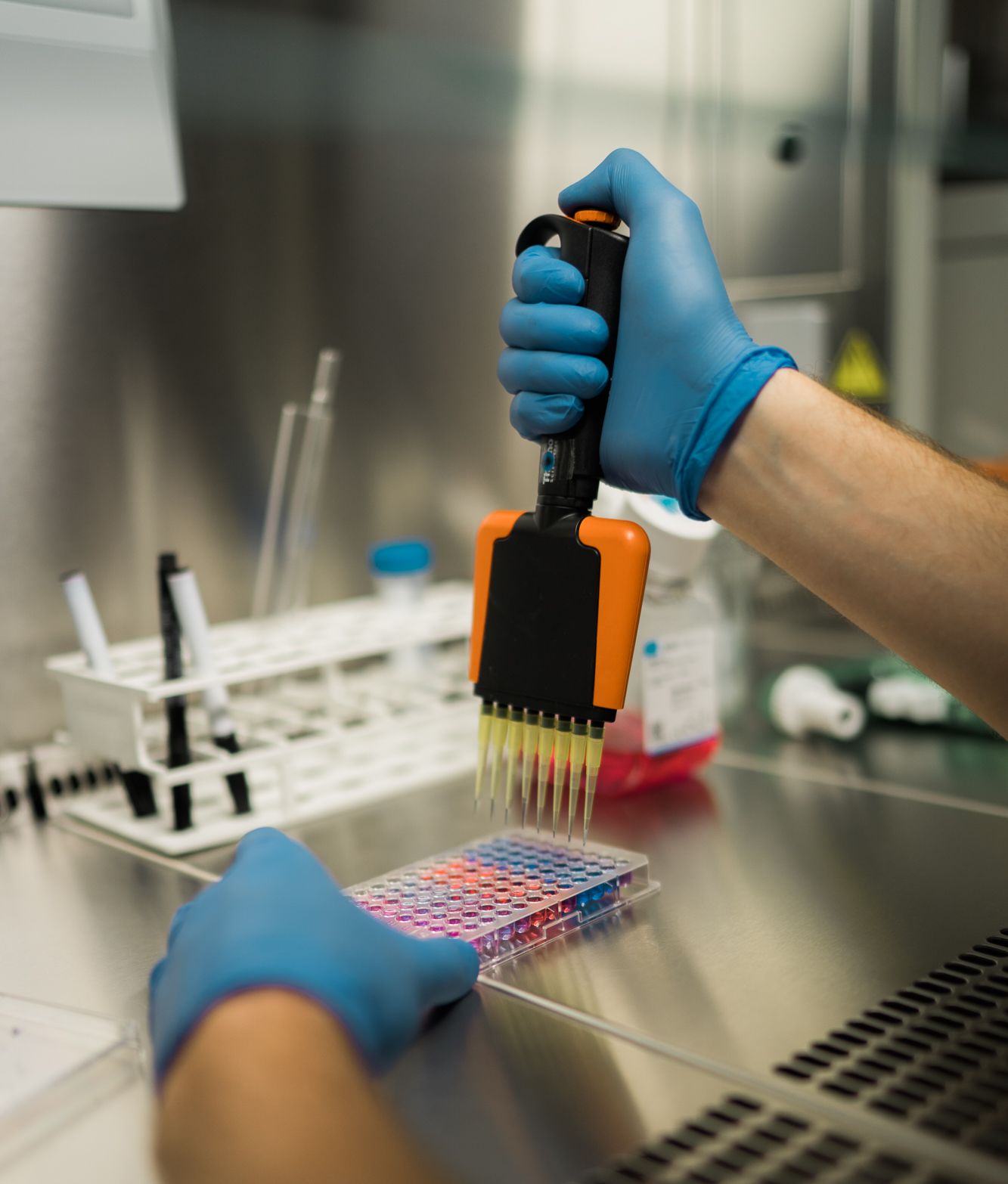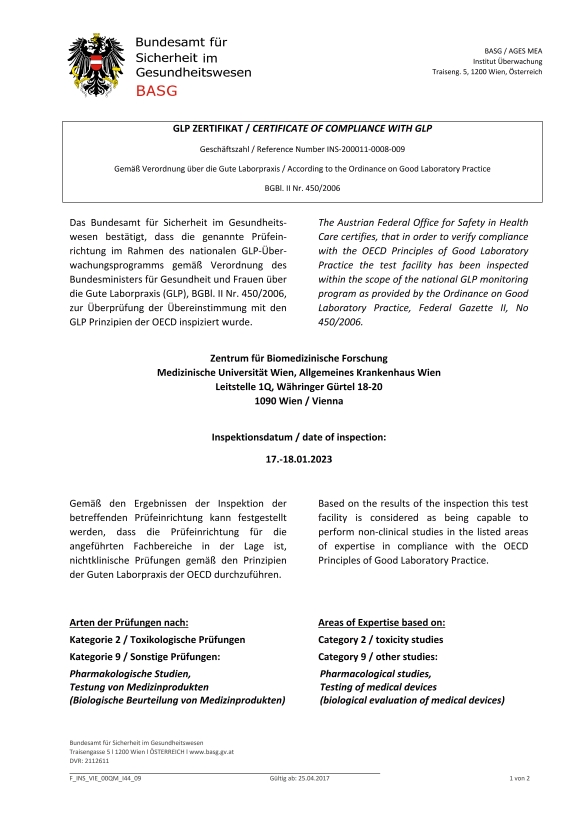The Center for Biomedical Research and Translational Surgery has a long standing expertise in testing new medical devices and drugs.
The available methods range from cell culture to pre-clinical animal models. This is only feasible with dedicated and experienced staff as well as state-of-the-art equipment. Based on this we are able to support our customers in the best possible way, thereby guaranteeing the successful development of their product. We are part of the medical device regulation (MDR) taskforce at the Medical University of Vienna, a pipeline for translational medicine from basic science to clinical practice.
General requests
We are at your disposal for any inquiries regarding training or testing. Please send us an e-mail. We will process your request as quickly as possible.





